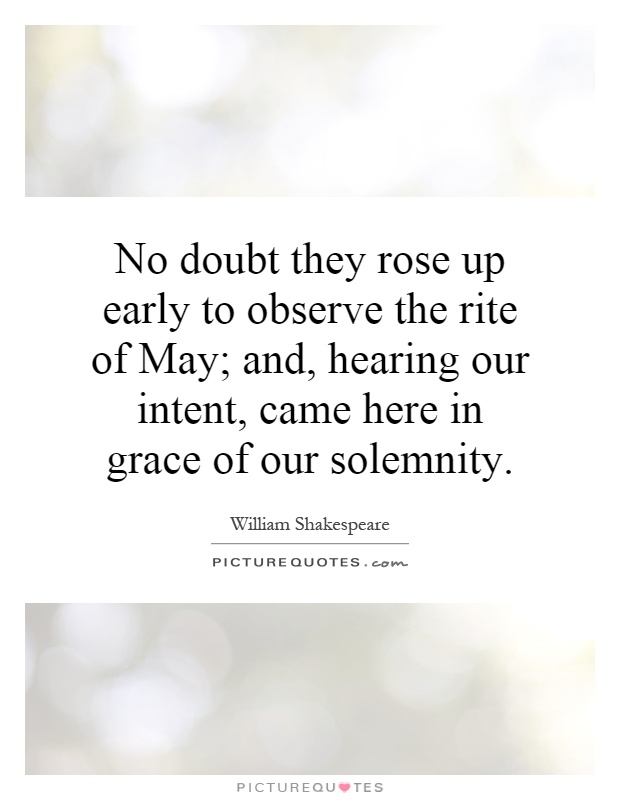No doubt they rose up early to observe the rite of May; and, hearing our intent, came here in grace of our solemnity

No doubt they rose up early to observe the rite of May; and, hearing our intent, came here in grace of our solemnity
The line “No doubt they rose up early to observe the rite of May; and, hearing our intent, came here in grace of our solemnity” is from William Shakespeare’s play “A Midsummer Night’s Dream”. This line is spoken by Theseus, the Duke of Athens, in Act 4, Scene 1 of the play. Theseus is speaking to his betrothed, Hippolyta, about the group of young lovers who have come to the woods to celebrate May Day.In this line, Theseus is reflecting on the fact that the young lovers have risen early to observe the traditional May Day rites. May Day was a popular holiday in Shakespeare’s time, celebrated with dancing, singing, and other festivities. Theseus believes that the young lovers have come to the woods to celebrate May Day and have stumbled upon the Duke and his court, who are also in the woods for their own reasons.
The line also suggests that the young lovers have come to the woods out of a sense of duty or obligation. They have heard about the Duke’s plans to marry Hippolyta and have come to witness the solemnity of the occasion. Theseus believes that the young lovers have come to the woods in a spirit of grace and respect for the Duke and his court.
Overall, this line reflects the themes of love, duty, and celebration that are central to “A Midsummer Night’s Dream”. The play is a comedy that explores the complexities of love and relationships, and the line captures the sense of joy and festivity that pervades the play. It also highlights the contrast between the young lovers, who are driven by passion and desire, and the Duke and his court, who are guided by duty and tradition.












 Friendship Quotes
Friendship Quotes Love Quotes
Love Quotes Life Quotes
Life Quotes Funny Quotes
Funny Quotes Motivational Quotes
Motivational Quotes Inspirational Quotes
Inspirational Quotes